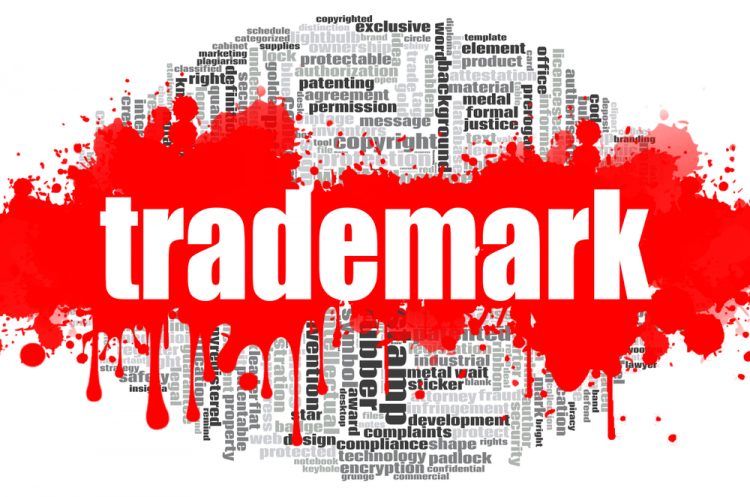What Is the Difference Between a Trademark and a Business Name

Essentially, a trademark protects any sign that a trader uses – and a sign most commonly would be a name or a logo but can be a colour, shape, sound, smell, numbers or a combination of these things – to distinguish their goods or their services from the similar goods and services of other traders.
Whereas a business name is there to identify the business owners and operators. Registering a business name is a legal requirement in Australia where the owner (which could be, for example, a person, a partnership or a company) is trading by a name other than their legal name. This is simply so that customers and the like can identify the business operators if needed. It’s not designed to protect the name.
One of the reasons we see people get confused between trademarks and business names is that a business name can also be a trademark. However, what is really important to know, as a business owner, is that it is not sufficient to register your business name and think that you then have protection for your trademark because you don’t. A business name registration is not a form of intellectual property protection by any stretch of the imagination (that’s where trademark registration comes into play). We come across many business owners that have assumed the mere registration of a business name provides protection when it simply doesn’t. We have also seen business name owners issue cease & desist letters to others that are using similar names, when, on review there has been no right in place to send such a letter – leading to legal consequences for the business name owner that sent the letter without the right to do so.
If you have registered a business name or a trademark and believe your rights have been infringed through use by another person it is crucial to obtain advice before sending any sort letter of demand to ensure you are truly within your right to do so.
Unfortunately we have had occasions where we are not even asked the question about a person’s rights, as they’ve assumed entitlement to a name based on a business name registration, which, can be dangerous. They assume that they’re protected and therefore they don’t ask the question, and then it only becomes apparent to them way down the track, possibly years later, when they encounter a situation where they need to, for instance, enforce their rights and they believe that they have rights, and then they call a trademark attorney firm like ours with the statement, “Somebody is using my name without my authority!”. Only then do we realise that they haven’t registered their trademark, which can be problematic. If for no other reason, registering a trademark takes a minimum of 7.5 months in Australia so even if that business name owner starts the process immediately, it’s quite a wait before they can make a trademark infringement claim. Whilst it is possible to protect and enforce an unregistered trademark, it’s much more difficult to do so because you essentially have to prove that you have reputation and goodwill in that trademark at common law, and that’s evidentiary very difficult, as opposed to having a trademark registration, which is clear evidence that you’re the owner and that you have rights (even if you don’t have significant reputation in the name). Aside from the difficulty in establishing a reputation in terms of relying on unregistered rights, the cost of bringing an action against another person based on unregistered rights is hugely costly.
Worse are scenarios where a prospective client gets in touch, believing that their rights have been breached due to the unauthorised use of their business name by another party, only to realise the other party has actually registered a trademark for that name. Having a registered trademark provides the owner the right to use the trademark for the goods or services nominated. Whilst it may still be possible for the original business name owner to register a trademark based on its prior use of that name, doing so does not ‘undo’ the other trademark registration and if the two marks are registered and co-exist in registration on the trademarks register, once cannot allege the other is guilty of trademark infringement. In such a case, the person that believes that they are the ‘true’ owner, and that the other should not have been allowed to register the name in the first place, may find the only option at that time is to seek cancelation of the improper registration. Such a cancelation action is via the Courts, at a large cost.
In summary, business names and registered trademarks serve two different purposes. If you intend to use your registered business name also as a trademark (e.g. you intend to offer, sell and promote goods/services under that name such that the name serves to distinguish those goods/services from other traders similar goods/services) it is best practice to ensure that:
- Your proposed use of a name doesn’t infringe any existing trademark registrations; and
- Register your name as a trademark as soon as you can, to ensure that your ‘ownership’ of the name will be recognised, and, to help prevent competitors from registering before you.
Note also that the ASIC business name application does ask you to ‘tick’ a number of boxes on registering, including that you acknowledge the business name does not convey ownership rights and you’ve considered the trademark aspect. Whilst most are guilty of clicking they ‘agree’ to certain things online at times, doing so in this scenario can have consequences if you later suggest you ‘didn’t know’ your business name infringed a trademark or ‘didn’t know’ your business name didn’t provide ownership rights.

